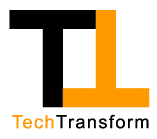The Restricted Free License
|
TechTransform, February 28, 2002: Do you want your software product to dominate its category? Read on.
There is one proven strategy that will help make your product a world standard and it doesn't rely on any one partner; it is to make the full product license FREE for personal and educational use.
In this scenario, corporations have to pay a license fee but they often get some "pro" or development kit features. Also, special versions of product can be sold (at a small fraction of retail) into the promotional products industry and for specialized partner network applications.
This is a well-proven strategy outlined in my article Marketing The Free, used to great success by both WinZip and the original Netscape browser. It generates both current corporate revenues and a wide user base for paid upgrades to the higher level products.
Since you are requiring the free users to register, you can get their names and email addresses and other demographic information. This creates a large base of users you can communicate with.
Registration is also how you'll pick up the corporate users, by the way, because in the US larger companies are required to answer truthfully to the "personal or corporate use" question you ask in the registration form.
Spreading the word: FREE product is the best vehicle for affinity network promotions and is how people will spread a great idea through peer recommendation.
This is the model that made the 1995 Netscape browser a world standard and (this is the real secret) drove its corporate server software sales.
WinZip is another great example - in that case there is also a nagging "agree" screen that results even in personal users purchasing paid product to some degree.
At the end of the day when you have a great basic product there isn't enough budget to buy market share fast enough, and people end up copying you. So the key is a free model at the base of the pyramid, because people will relay free products to each other. That fuels the rest.
A "Restricted Free" service works just as well in services. ZDNet's David Coursey says this about the successful (and profitable) PalTalk: "[Founder] Katz could have cut expenses by discouraging his non-paying customers, but he's been wise enough not to. Instead, PalTalk will continue adding features for both paying and free members." Full Article
It is not hard to spread the word, on the contrary. It helps drive the building of a partner/affiliate program. The free product itself becomes the network-building item. Partners will like the idea of corporate up-sell and specialty versions.
In this "restricted free" (not freeware) model we would see income through the following actions:
a) convert the free users by running internal communication programs (email tips, newsletters) and policing commercial use,
b) upgrade non-commercial users for pro features and to remove the reminder screen,
c) pay affiliates and partners for referrals of corporate and specialty product, (and sometimes sell them the specialty product at deep discount)
This is a classic marketing strategy in the Microsoft space. In 1996 while at Quarterdeck, I helped negotiate a deal with Microsoft to include WebCompass as a download option for every user of Internet Explorer 4.0. Microsoft required it to be free, but we were permitted to upgrade users to paid product.
To me this was a self-evident proposition but I was not able to convince my employer (at the time they didn't think Internet Explorer downloads were a wide enough free vehicle), and WebCompass lost the market to competitors like Copernic ... but no one ever again had the opportunity to be included with Internet Explorer.
Another example: in 1997 I helped make ZipMagic a world brand, but I could not convince Mijenix to let it be "restricted free" and in this way destroy Winzip in the market. It was a better product, but it remains a smaller player today.
 Updated March 4, 2002
|
Copyright © 1996-2011 Riggs Eckelberry Marketing Group, Inc. All Rights Reserved
TechTransform and the interlocked "T" are trademarks of REMG, Inc.
